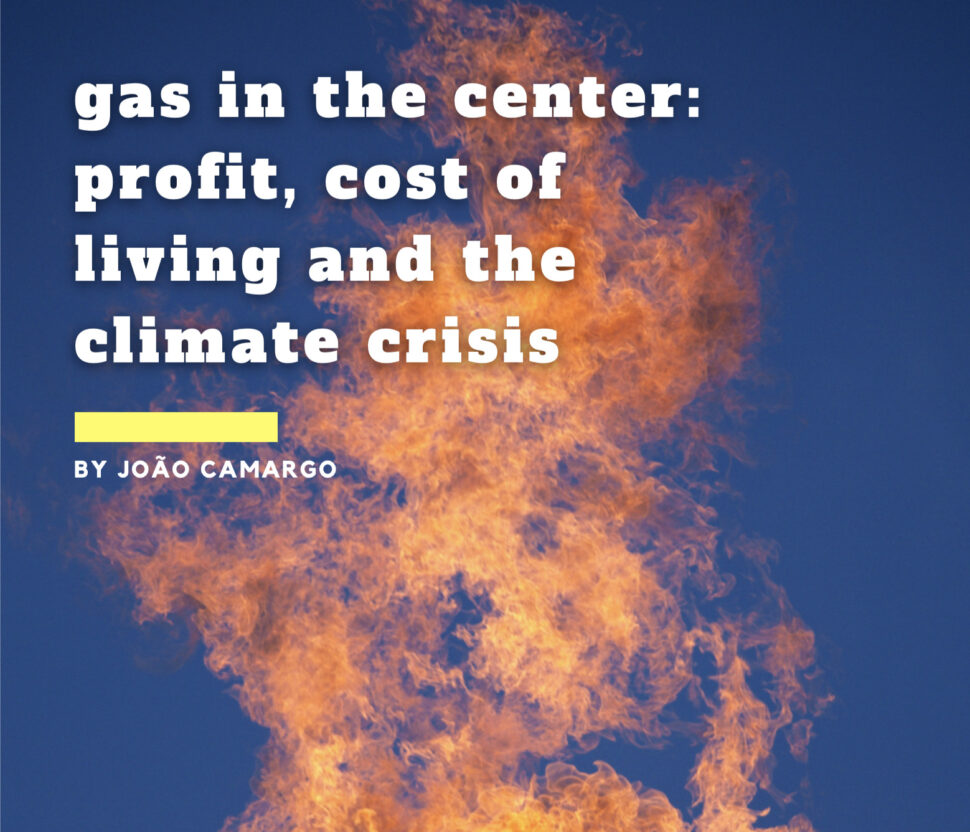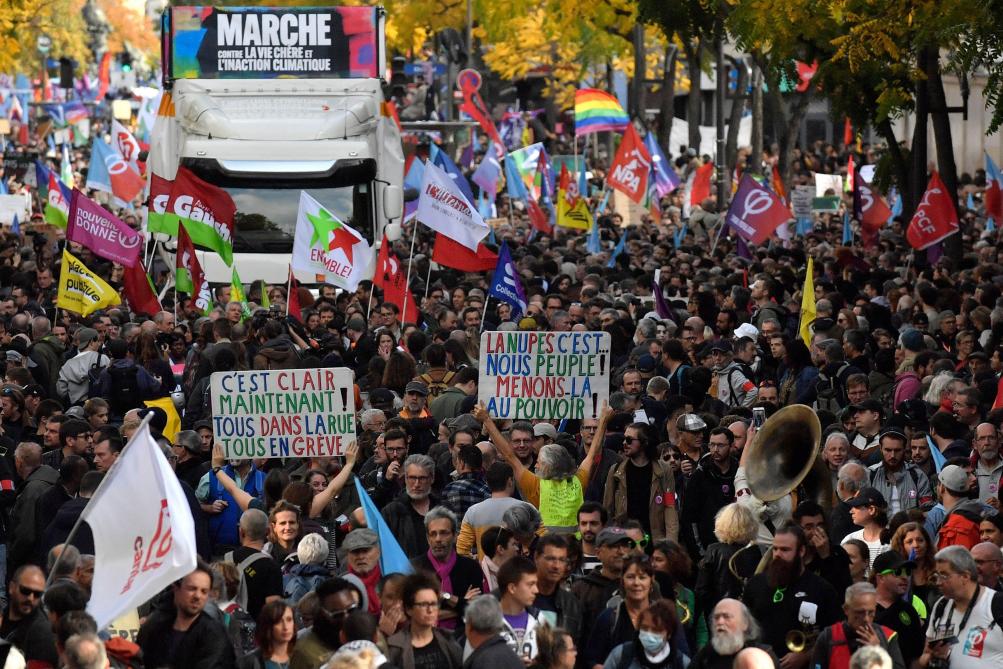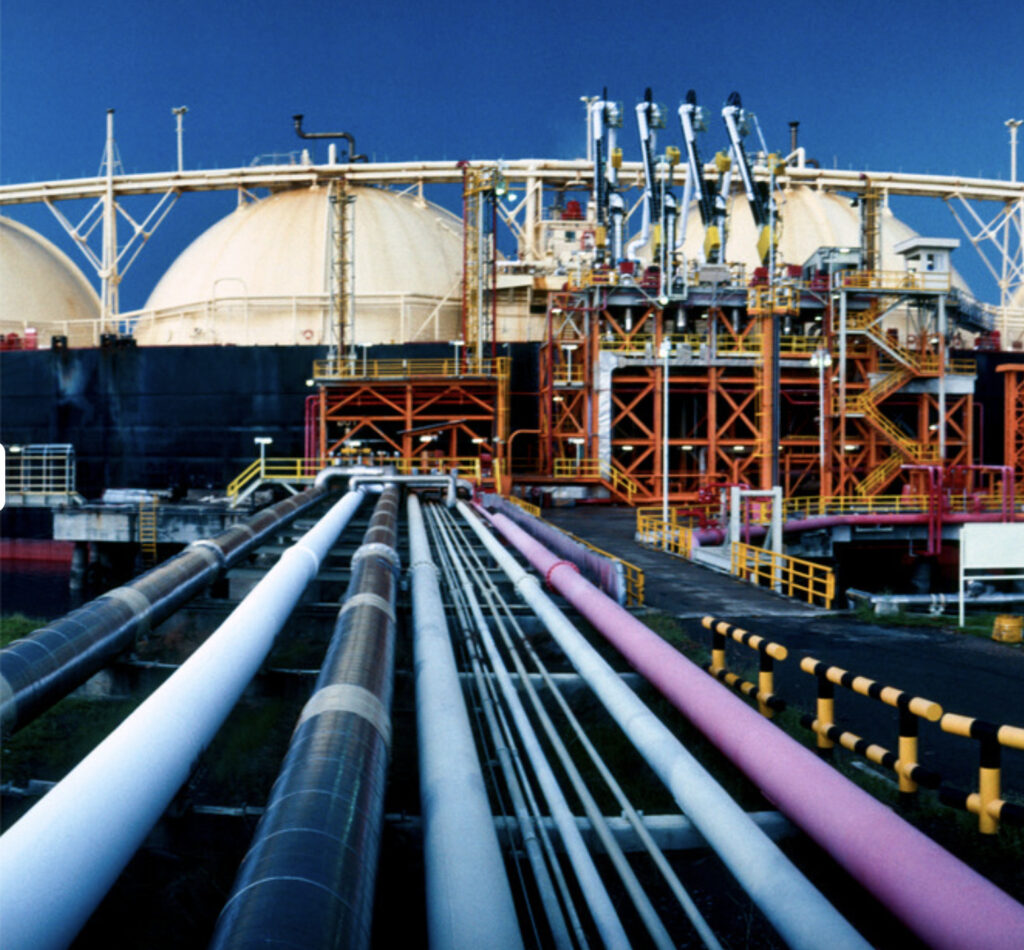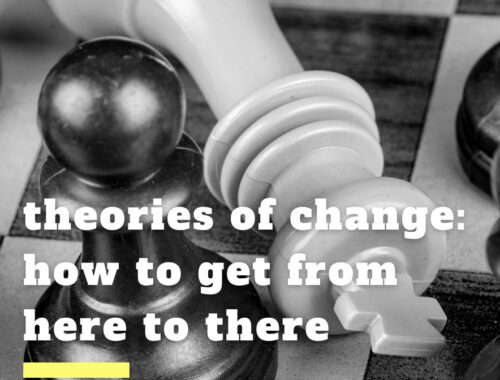
Gas in the center: profit, cost of living and climate crisis
We have a hard narrative task ahead: we need to challenge the normalisation of the “cost of living crisis” as something that simply happened. This crisis has been directly provocked by the oil & gas industry and their historically high profits.
It is not a “cost of living” crisis, but a super-exploitation, massive profit crisis, that directly takes wealth from those who depend on fossil fuels, that is, all those that live in modern societies, and hands it out to private fossil fuel companies.
Looking back a little over a decade, we can remember the 2008 financial crisis of the banking system that was turned into the crisis of sovereign debts when governments bailed out the banks. Then, the crisis of sovereign debts was turned into a massive austerity crisis when the governments that had bailed out the banks paid applied massive cuts in public spending, which led to a recessive spiral of bankrupcies and mass unemployment.
The “energy crisis”, which largely precedes the invasion of the Ukraine by Russia, gave an unprecedented amount of money to big oil and gas, well before any shortage was expected. This energy crisis turned into an inflation and price crisis, when an economy deliberately dependant on fossil fuels reverberated in every product the profits of the fossil companies. It morphed into a food crisis, a transport crisis, a clothing, a heating, a health crisis. Inflation in Europe is the highest since there is the Euro. In many countries it is the highest in over 50 years. Energy and gas prices have increased sometimes over 400%.
Governments’ responses to this have been small one-off payments to the people, sometimes for specific purposes such as energy bills or transport, while promoting energy savings for households. Simultaneously, they have slashed taxes on energy, oil and gas, and directly subsidized energy-intensive industries, creating all sorts of favourable conditions for more gas imports.
Finally, to fight inflation, the central banks of the EU, UK, US and others have decided to increase interest rates, to try and take money out of the economy. What this means is that every loan in a highly and purposefully indebted society, will rise, sometimes skyrocket. This will conclude the vicious circle. In the end, people will have paid for gas high prices in at least five ways: their energy (for home and transport), the absolute majority of the products they need (specially food), wage compression (where wages increased, it was always under inflation rates), in the tax cuts to energy and fossil companies and in the high interest rates. It would be dramatic in regular times. In the middle of the climate crisis it is simply unbelievable.
Protests have long since started, first led by the far-right, then slowly tilting to the left. In the UK, Enough is Enough mobilised massively under the strike dynamic that has been created by Mick Lynch’s RMT and the crumbling Conservative Party. Although there was support by climate justice organisations, the main message was far from touching the energy and climate crisis through a clear solution. In France, NUPES energised the March Against Expensive Cost of Living and Climate Inaction, which was also strongly participated. In different countries, there is a sense that mass mobilisation will be inevitable, but there is also sense of waiting to see what happens.

In many cases, to get to more people, there is a specific focus on cost of living while leaving climate and energy, seen as a divisive issue, out of the calls and the proposals. That is bad.
The sabotage that happened in the NordStream pipelines, combined with Bolsonaro’s and Trump’s defeats in the Presidential and Congressional elections in Brazil and the US have left the far-right without a clear rallying cry to hit the streets again. We must not be content with this. They will find good rallying cries, and clearly enough, the policies from the capitalist establishment will give it to them in a golden platter.
The right and the center have chosen carnage as the politics to take on the current crisis. This time, they will count on the far-right to do part of the containment of popular movements.
What then is to be done?
The trouble with letting the system control the narrative of the origin of this crisis, is that it will – and oil & gas companies in particular – dominate the proposals to solve it, effectively blocking any possibility of a solution that cuts them out, which is the only functional hypothesis of maintaining civilization and, in particular, of not permanently repeating profit, energy, cost of living and austerity crises in the next years.
The narrative about the current crisis needs to be snatched out of the hands of the system’s establishment. It also needs to be decisively separated from the invasion of the Ukraine. This crisis needs to have a first, second and last name: Gas, gas, gas.
They have put all the chips on more gas as the way to go, with public resources being mobilised to guarantee a new network of gas infrastructures, creating what they call diversification, that is, increase imports from the USA, Saudi Arabia, Qatar, UAE, Nigeria, Algeria and so on.
In a crisis created by dependence on fossil gas, they have chosen to double down on gas, even if shortages are growingly likely. If we didn’t know about capitalism’s insanities from before, this would be a perfect school for that.
It is crucial to tackle the component cost of living together with the component gas and climate. Only an articulated program can expect to achieve any decent and credible proposal. No increase in wages will do if their plan is to deliberately provoke a contraction in the economy and make money more scarse. There is no answer within the capitalist market that doesn’t mean a new and excruciating crisis for the “99%”.
We need to go for the jugular. This is the moment for a mass deployment of renewables that allows us to cripple fossil monopolies and take political and economic power away from coal, oil and gas. Yet, there are still some important traps laid in our path, that can’t be denied.

Focusing specifically on the energy component of the problem, I identify six main conflicts:
- Gas and Coal: considering the deliberately created dependence on fossil gas (in particular in the EU and US), there will be a push to try and reopen coal plants that have been shut down or delay the closure of those set for closure. A lot of the work done in the last decades by the climate justice movement has made coal and oil a complete no-go for transition. The same needs to happen with gas now. We can’t go back, in countries where coal is still a threat, gas needs to be leapfrogged altogether.
- Public gas and private renewables: in a crisis created by the prices of gas which is determined by private companies, governments have chosen to increase this dependency with publicly paid infrastructure. The money they say they don’t have to pay for the transition is being spent on more gas. In the meantime, they have decided that renewables should be deployed by the market, that is, by private capitalists. Renewables’ prices are absurdly low when compared to fossil energy, but green capitalist pricing and subsidizing mechanisms pay for them much above their costs, because the purpose isn’t to make energy, only to create another (or in some cases, the same old) gang of billionaires. In the Iberian marginalist system, electricity prices are set by the most expensive plant to provide electricity, which means that when renewables are cheaper and gas more expensive, the more profitable the renewable business becomes. That is why so many of the old energy utilities are simultaneously investing in fossils and renewables: they need both to achieve maximum profit. A privately owned renewable sector is unrealiable and will cause hindrances both on deploying at the necessary speed, on controlling prices and on cutting the necessary emissions. We need a massive publicly owned renewable industry.
- Green frauds, Gas and Hydrogen: this menu of science fiction technologies (Carbon Capture and Storage, Carbon removal, offsets) is heavily supported by governments and the fossil industry as an excellent diversion from the only effective action of shutting them down. When gas prices peaked, a deliberate confusion was created between gas based projects and renewable projects, in a huge communicational effort from lobbyists and the industry. In October, the ENTSO-G gas industry report revealed the plans for the next 10 years in Europe, with 300 new gas projects, connections, floating LNG units, new LNG ports, biogas and hydrogen projects. Hydrogen has, in fact, been a key for expanding the gas infrastructure, with lobbyists advocating for the “mix” of hydrogen with natural gas in the existing pipelines and building new hydrogen pipelines (much more expensive then the others) where gas can also be transported. The current proposals amount to a 23 thousand kilometres network to be built until 2040, a veritable life insurance for oil and gas companies.
- Nuclear vs Renewables: the nuclear delirium, with hugely expensive and dangerous infrastructure that could only start working in almost 10 years is strongly defended by technopositivists and the far-right. It would have no interest but to divert resources and financing to hinder any energy transition. Over half of France’s nuclear power plants had to shut down this summer due to the heatwaves, and even in the autumn, emergency shutdowns are recurrent. Extreme heat and drought are aggravating the dangers of nuclear technology, rendering it even more expensive and inoperative. In the Russian invasion of the Ukraine, all episodes recurrently happening around the Zaporizhzhia nuclear power plant reveal a permanent apocalyptic risk, even more so in a world in growing convulsion with unbridled nationalism and militarism.
- Transport and electricity: the prices of everything that is moved are directly indexed to the prices of fuel, which have also beaten records recently. The public transport systems are seldom electrified, let alone decarbonized. Most of merchandise transports, public transports and all non-electric energy are completely in the hand of the fossil industry and there is no proposal at the moment to change this situation. There were some emergency measures, in Spain or Germany, with temporary free public transportation, but no shift was proposed or is generally being discussed in this, one of the most heavily emittent and dependent sectors. It is still fully in the hands of the OPEC and other producers in their race for maximum profit and climate collapse.
- Electrity and Heating: in the course of the last decades, a lot of housing heating was converted into gas. This entire grid was set up in particular in Central Europe to use Russian gas and makes it particularly sensible to tackle. Insulation and heat pumps are some of the most technologically savvy solutions, and should be used to break the dependency chains created for fossil gas.
An alliance to go on the attack
The climate justice movement has been very active in the last five years. It has been diverse, bold, innovative. It needs to be effective and it needs to build broader alliances.
The current crises – energy, cost of living, inflation, austerity – have the exact same origin as the climate crisis: the capitalist system and its components. When it comes to energy, the system is putting all its chips in one thing: fossil gas. We need to build an alliance to go on the attack and dismantle its main plan, which is its weak spot.
As long as they maintain their narrative, all debates will be light years away from the need to cut half of the global emissions by 2030. Even in this multicrisis, capitalists only think about increasing emissions, growing ever more and increasing energy production – with gas, coal, nuclear and renewables – even if this reinforces all the crises we are living. We will solve none of them if we don’t create and execute proposals outside of market mechanisms – this requires major social conflicts. It requires confronting capitalists at the national and international level now and break the rotten consensus on these crises.
Capitalism as a whole is the ultimate crisis of Humanity, but in this moment, fossil gas is a crucial vector that needs to be stopped.




